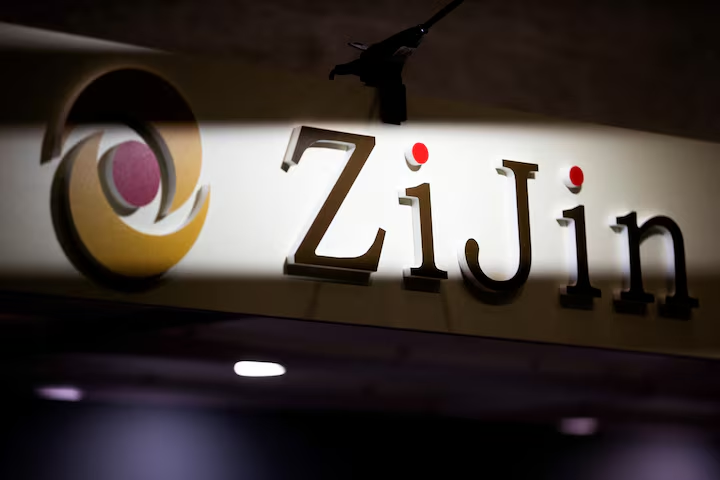As arbitration has become more and more popular for dispute resolution, it should not come as a surprise that there have been rising incidences of claims of unfair and biased awards. As experienced arbitrators are chosen repeatedly, post-award challenges alleging conflicts of interest have become more common. These challenges are often based on routine professional contacts among panelists or between arbitrators and one of the parties or their counsel.
To avoid after-the-fact disputes, many arbitrators are now disclosing even minor interactions up front. Parties can also help head off such disputes by agreeing to make full disclosures up front and determining the thresholds for disclosure. While such claims of bias often demonstrate post-award gamesmanship, the fact-intensive nature of the inquiry has provided fertile ground for disgruntled parties to try their hand at them. Courts around the world have been asked to decide whether to enforce arbitration awards in the face of accusations that arbitrators failed to disclose professional relationships or interactions that allegedly affected their ability to render an impartial and nonbiased award.
Setting Disclosure and Conflicts Standards
Arbitral tribunals must uphold the highest standards of impartiality and independence in order to maintain the integrity of the arbitration process. The International Bar Association (IBA) Guidelines on Conflicts of Interest in International Arbitration provide a widely accepted framework for arbitrator disclosures. The IBA Guidelines were most recently updated in February 2024, with some changes aimed at resolving issues in this area, while others may continue to be a source of dispute.
The IBA Guidelines establish three lists of potential conflicts that arbitrators must consider when making disclosures:
- The Red List includes waivable and non-waivable potential conflicts that must be disclosed.
- The Orange List includes potential conflicts that should be disclosed but will be considered waived if there is no timely objection. This includes “close personal relationships” between an arbitrator and a party, party affiliate, witness or expert, past or ongoing work for parties, appointment as an expert or affiliate by a party or counsel, and concurrent service on a tribunal alongside counsel or co-arbitrators.
- The Green List includes situations that would not ordinarily require disclosure at all, such as “professional contacts” with other arbitrators.
The Orange List has been a source of sustained debate, particularly concerning the expanded potential conflicts of arbitrators’ appointments as experts and arbitrators concurrently serving alongside counsel or co-arbitrators. The revisions also broaden the scope of professional relationships that could cause a conflict by requiring arbitrators to consider a more expansive view of their law firm’s or employer’s structure and to also consider “any legal entity or natural person over which a party has a controlling influence.”
It is important to note that failure to disclose, in and of itself, does not necessarily mean a conflict exists or that a disqualification should ensue. However, the IBA Guidelines could help curb belated challenges to partiality. Under General Standard 4, a party is deemed to waive any potential conflict that is not raised within 30 days of when a party becomes aware or could have become aware of the potential conflict, had a reasonable inquiry been “conducted at the outset or during proceedings.”
Arbitrators must be diligent in their disclosures and consider all potential conflicts of interest. Failure to do so can lead to challenges and undermine the legitimacy of the arbitration process. The IBA Guidelines provide a valuable framework for ensuring transparency and fairness in international arbitration.
‘Evident Partiality’ and the Grupo Unidos Decision
In the United States, the Federal Arbitration Act (FAA) provides a limited basis for vacating an arbitration award under Section 10(a)(2), where there was evident partiality or corruption in the arbitrators. One of the few grounds for challenging an award is evident partiality, which parties have alleged based on undisclosed relationships.
In the recent Grupo Unidos case, an International Chamber of Commerce (ICC) arbitral tribunal seated in Miami issued a preliminary partial award against the nonprofit Grupo Unidos in a construction dispute between a consortium of European construction companies and the Panama Canal Authority after five years of arbitration.
Grupo Unidos alleged procedural defects in the awards against it and demanded additional post-award disclosures from the arbitrators. The company asked the ICC to disqualify all three arbitrators on the panel due to alleged conflicts stemming from the arbitrators’ past service on unrelated tribunals with some of their co-arbitrators or with party counsel.
When the ICC International Court of Arbitration rejected those challenges, Grupo Unidos sought to vacate the award in the U.S. District Court for the Southern District of Florida, based in part on the ground of “evident partiality” under the FAA. The district court denied vacatur, reasoning that none of the arbitrators’ contacts at issue rose to the level of “a substantial or close personal relationship to a party or counsel” sufficient to establish evident partiality.
The Eleventh Circuit agreed, interpreting the “evident partiality” standard to justify vacatur only if “either (1) an actual conflict exists, or (2) the arbitrator knows of, but fails to disclose, information which would lead a reasonable person to believe that a potential conflict exists.” It clarified that “[t]he alleged partiality must be ‘direct, definite and capable of demonstration rather than remote, uncertain and speculative.’”
The court determined that the arbitrators’ prior work on tribunals with these same co-arbitrators and/or counsel did not meet the “evident partiality” standard and amounted to nothing more than “professional familiarity.”
However, Grupo Unidos left open the possibility that “professional familiarity” can demonstrate evident partiality where it rises to a “close” or “substantial” relationship. The court reaffirmed the obligation of arbitrators to disclose information “that might create an impression of possible bias” and noted that undisclosed business relationships and dealings between arbitrators warrant greater suspicion.
Even if ultimately unsuccessful, such challenges can significantly delay award enforcement and increase costs for all involved.
Takeaways
Parties involved in arbitrations should take note of two key takeaways to avoid post-award challenges. Firstly, U.S. courts have a tendency to deem objections waived if they are not raised promptly once a conflict is known or should be known. This is reinforced by the new International Bar Association (IBA) Guidelines. Therefore, parties should ensure that they seek appropriate disclosures early in the arbitration process, and that there is an ongoing obligation on arbitrators to update relevant disclosures. Arbitrators may also consider recording the parties’ acknowledgement of the disclosures.
Secondly, parties may wish to agree on the level or scope of disclosure, such as agreeing that the IBA Guidelines will set the applicable disclosure standard in the arbitration and agreeing on the extent to which professional contacts must be disclosed. This may help avoid post-award challenges, such as the one that led to the setting aside of an ICC award by the Paris Court of Appeal in 2023, where the tribunal chair had delivered a eulogy professing his close friendship with the prevailing party’s late counsel. Another example is when a Brazilian arbitrator resigned in a proceeding brought by a shareholder against a corporation after the company alleged that he had previously acted as counsel to the president of another shareholder group that brought claims against the same company.
In addition, parties may wish to consider enlarging the pool of eligible arbitrators they consider, which can help diversify arbitral tribunals and ultimately reduce the number of challenges. This can be particularly important in cases where there are concerns about conflicts of interest or bias.
Overall, parties involved in arbitrations should be aware of the importance of appropriate disclosures and prompt objection to conflicts, as well as the potential benefits of diversifying the pool of eligible arbitrators. By taking these steps, parties can help ensure that their arbitrations are conducted fairly and efficiently, and that any post-award challenges are minimized.








